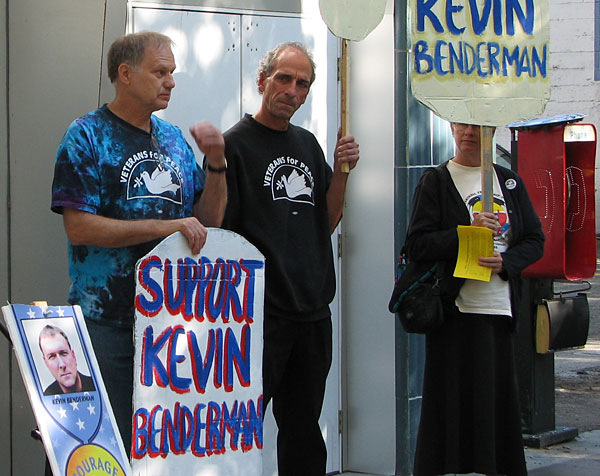I guess something magic is going to happen this Christmas.The Pentagon has developed a detailed plan in recent months to scale down the U.S. troop presence in Iraq to about 80,000 by mid-2006 and down to 40,000 to 60,000 troops by the end of that year, according to two Pentagon officials involved in the planning who asked not to be identified because of the sensitive nature of their work. Their account squares with a British memo leaked in mid-July. "Emerging U.S. plans assume that 14 out of 18 provinces could be handed over to Iraqi control by early 2006, allowing a reduction in overall [U.S. and Coalition forces] from 176,000 down to 66,000," says the Ministry of Defense memo.
Oh yeah, oh yeah. Iraq will have a new constitution.
And then it's adios muthafuckers.
No, no, wait, I know. We'll have the permanent bases built and running by the end of this year.
Help me out here.
Oh yeah, that's it.[E]arlier this year the Pentagon had been mum on a withdrawal timetable, in part so as not to encourage the insurgents. Now the conditions for U.S. withdrawal no longer include a defeated insurgency, Pentagon sources say. The new administration mantra is that the insurgency can be beaten only politically, by the success of Iraq's new government.
Ben Sargent
Indeed, Washington is now less concerned about the insurgents than the unwillingness of Iraq's politicians to make compromises for the sake of national unity. Pentagon planners want to send a spine-stiffening message: the Americans won't be there forever.
"At this hour, our men and women in uniform are defending America against the threats of the 21st century," the President said. "We know that the best way to honor their sacrifice is to complete their mission, so we will stay until the fight is won."
-- George W. Bush July 5, 2005
"Setting an artificial timetable would send the wrong message to the Iraqis, who need to know that America will not leave before the job is done. It would send the wrong message to our troops, who need to know that we are serious about completing the mission they are risking their lives to achieve. And it would send the wrong message to the enemy, who would know that all they have to do is to wait us out. We will stay in Iraq as long as we are needed, and not a day longer." [George W. Bush, June 28, 2005][...]
Regarding the question of setting a deadline for withdrawing U.S. forces from Iraq, Bush said such an action would be a "serious mistake" in that it would send the wrong message to the Iraqi people, U.S. troops and the terrorists.
[June 29, 2005]
FORT BRAGG, North Carolina – US President George W Bush late Tuesday acknowledged worries about deadly violence in Iraq but rejected calls for sending reinforcements or setting a deadline to bring US troops home.[...]
Hours before the president spoke, a suicide car bombing north of Baghdad killed the oldest member of Iraq’s fledgling parliament, while separate attacks killed two US soldiers and injured three more.
Good boy.July 27, 2005
At a joint conference with U.S. Defense Secretary Donald Rumsfeld, Prime Minister al-Jaafari said the time has arrived to plan a coordinated transition from American to Iraqi military control throughout the country.
The Fiend has paid a couple of surprise visits to Jaafari recently. No gun to Jaafari's back there, or anything.
A couple of pretty big "ifs".Meanwhile, speaking with U.S. reporters traveling with Rumsfeld, Gen. George Casey, the top American commander in Iraq, said he believed a U.S. troop withdrawal could begin by spring 2006 if progress continues on the political front and if the resistance does not expand.
And I find this rather interesting:
Will the ratio of insurgents infiltrating the ranks of guards be about the same as the number infiltrating the police and military?The Secretary of Defense said he would be pushing the Iraqis to provide more people who can be trained by U.S. personnel to handle the growing number of detainees in the country, now estimated to number at least 15,000.
On April 20, 2003, The New York Times ran a story citing unnamed sources indicating the U.S. military was planning as many as four permanent military bases in Iraq. The next day, Defense Secretary Rumsfeld dismissed the story as "inaccurate and unfortunate." But what did Rumsfeld mean by "inaccurate"? Perhaps it was "unfortunate" for the administration when the basing plan was leaked to the press. Perhaps the plan was deliberately leaked by the Pentagon or White House. The national media dropped the story after Rumsfeld's disclaimer.
Was the story "inaccurate" because instead of four military installations, the government has plans for six bases, as reported on November 19, 2003, by the Jordanian daily al-Arab al-Yawm:
The sources revealed the names of these bases and the planned positions for permanent deployment. They are:
* Al-Habbaniyah Airbase [already an RAF airbase for much of the last century] near the city of al-Fallujah, 65km west of Baghdad;
* Ash-Sha'biyah Airbase in Basra, 600km south of Baghdad;
* 'Ali ibn Abi Taleb Airbase on the outskirts of the city of an-Nasiriyah, 400km south of Baghdad;
* al-Walid Airbase about 330km north west of Baghdad;
* al-Ghazlani Camp in the city of Mosul, 400km north of Baghdad;
* A permanent deployment of forces in the east of Iraq in what is known as the Hamrin mountain range that extends from Diyala Provice, 60km east of Baghdad, and borders on Iran and extends to the oil-rich city of Kirkuk, 260km north of Baghdad.
....but hey, do what you want....you will anyway.

















